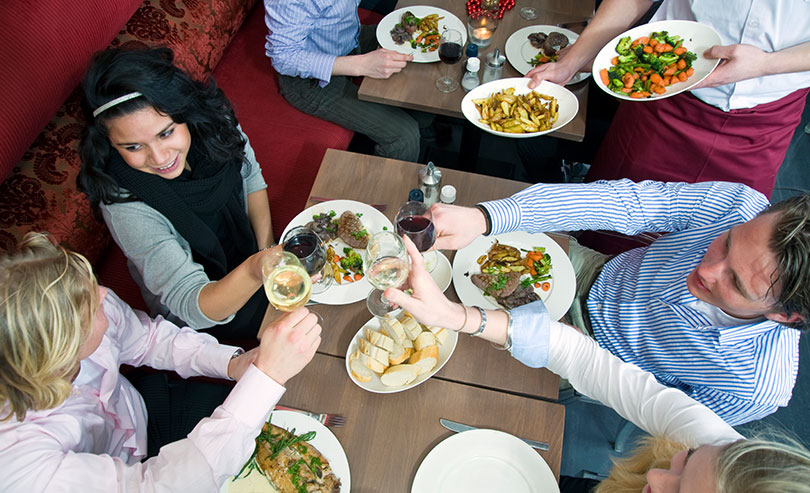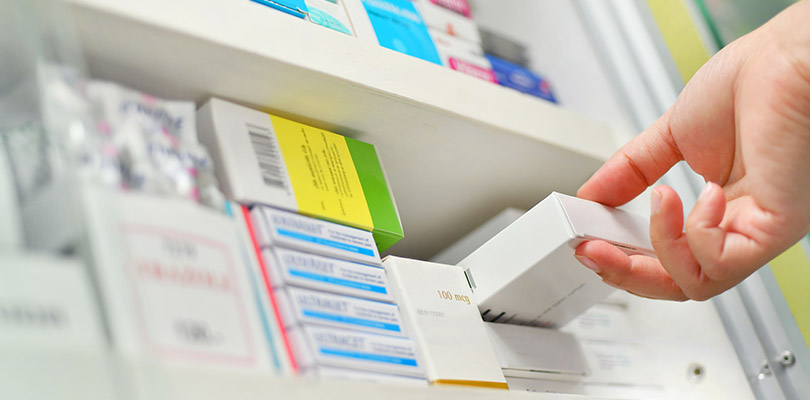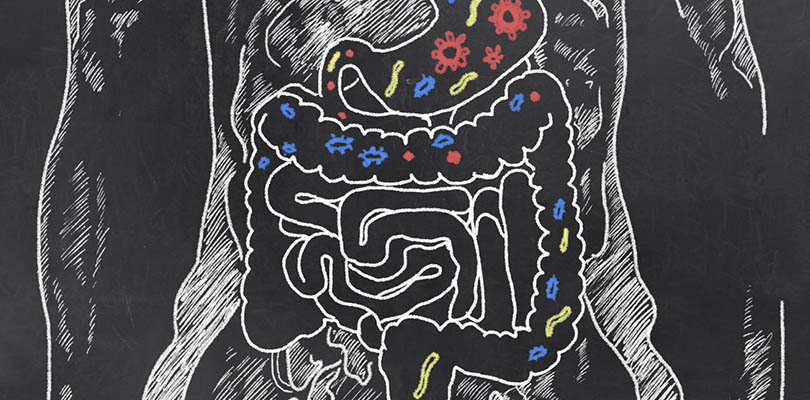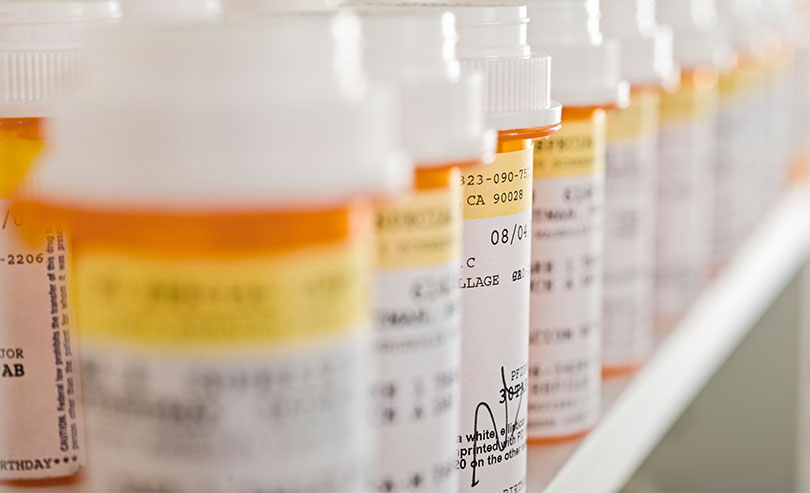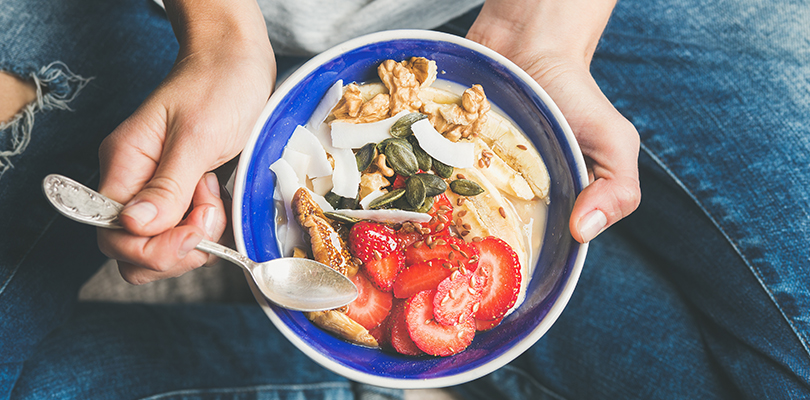Photo Credit: 36clicks / iStockPhoto.com
Tips for Eating Out With IBS
Sharing a meal with friends or family at a restaurant should be a happy occasion, but when you live with IBS, there’s no room for carefree indulgence. While the rest of the table salivates over the dessert cart, you’ll have to look away — probably towards the nearest bathroom, in case things take a turn for the worse.
While your digestive issues shouldn’t rule your life, they do take priority when you’re in a potentially dangerous dining situation. Fortunately, you don’t have to shy away from meals beyond the comfort of your kitchen, as long as you prepare wisely. The better you understand the hidden dangers (and possible solutions) in menus, the more freedom you’ll have when it comes to eating away from home.
Finding the Best Menu Items for You
In general, the plainer the dish, the better for your IBS. That can put a damper on your mood, especially when so many delicious sights and smells are wafting around the table. However, a bit of willpower and some clever adjustments can make for a good meal, and a happy stomach.
Rich foods, dairy, gluten, and booze are some of the worst IBS triggers, so do what you can to avoid them. Sometimes that’s easier said than done, since they may hide out in complex preparations, so look closely. Here are some straightforward steps to a better dining experience:
- Beware of sauces and soups. Silky, rich, and uniform, it’s nearly impossible to determine the array of ingredients that go into any given soup or sauce. In many cases, there will be dairy, flour, garlic, and onions — all known IBS triggers.
- Skip fried foods. Cross contamination is a big problem with deep fryers. Typically, the kitchen uses the same fryer for everything from fish and cheese to battered appetizers, which means you could wind up eating a trigger food despite your best intentions.
- Pass on alcohol and caffeine. It can be tempting to tuck into a nice bottle of wine, but tread carefully: alcohol is a notorious stomach irritant, and for some people, no amount is safe. The same goes for caffeine, so rather than finish off the meal with an espresso, opt for a soothing herbal tea.
- Know your veggie triggers. Vegetables are incredibly healthy, and they should take center stage in your diet. However, when it comes to IBS, not all veggies are created equal. Onions, cruciferous veggies (think cabbage and broccoli), and beans can trigger gas and bloating (or worse). Of course, other veggies could cause you trouble, too.
- Stick to soluble fiber. When things begin to get uneasy, sometimes a starchy, soluble fiber like white rice or plain potatoes can slow the digestive process and calm your stomach down a bit. The more natural preparation, the better (french fries probably won’t do you much good).
When you eat can be just as important as what you eat. If you reserve a table before or after the dinner rush, there’s a much better chance that the kitchen and serving staff will remember and respect your special requests to modify a dish.
Tools to Sidestep Digestive Distress
IBS and alcohol don’t mix well because alcohol affects the digestive tract in many ways and may create even more symptoms.
Picking the right ingredients is obviously a big part of controlling IBS, but your management plan should go beyond reading menu descriptions. Prevention is always the best medicine, so focus on the preparations you make in the weeks, days, and hours leading up to the event:
Safe Food List
You probably know of some foods that are sure to cause trouble, but it might be time to get a bit more serious about your menu planning. Although there are dozens of common IBS triggers, few of them are universal — you need to find which foods bother you.
Keeping a written list is always a good idea. That way, you can update it regularly, and refer to it whenever you need to. Be sure to keep track of trigger foods as well as ultra-safe foods; soon you may notice a pattern or some relation between the types of foods in either column, which can help you branch out (or scale back your menu) comfortably.
Varied Menus
In general, the longer and more diverse the menu, the likelier you are to find something you can enjoy —and comfortably digest. If you’re the only one in the group with a special dietary concern, ask if you could take on the task of finding a restaurant that appeals to everyone, so you don’t find yourself in front of a set menu that’s sure to disagree with you.
In the case of a dinner with friends or family at someone else’s home, offer to contribute a side dish or an alternative main dish to the spread. If you’re feeling embarrassed about the reason behind your offer, you could simply say that you’re sussing out a food allergy, or you’ve decided to give a vegetarian diet a try.
Practice Run
If you’ll be dining at a restaurant, order a takeout meal as a trial run for your digestive tract. This will give you a chance to really consider the menu, get to know the portion size, and most importantly, assess the aftermath in the comfort of your own home (and bathroom). If there’s a problem, at least you’ll be able to deal with it in private.
Don’t get too discouraged if the dish upsets your stomach. You can call the restaurant to let them know your dilemma, and see if they could leave out the trigger ingredient, or soften the spice and scale back the butter. Many restaurants are happy to make some adjustments for special dietary needs, especially if you give them a heads-up beforehand.
Preventative Measures
What you consume earlier in the day can have a big impact on how well your stomach cooperates during the big event. Some people find that a trigger food causes immediate distress, but others may notice symptoms hours after they’ve eaten. Do your body a favor and eat very carefully all day, focusing on smaller portions and neutral ingredients to set a comfortable foundation for dinner.
Along with careful eating, you may want to take some IBS medication before you need it, rather than wait to use it as a rescue device. Talk to your doctor about taking an anti-diarrheal or anti-gas pill beforehand, or whether you should use something other than your go-to IBS meds in this situation.
Your mood and attitude play a much bigger role in your IBS discomfort than you may imagine. Lively, upbeat situations can bring on a rush of energy or anxiety as much as high-pressure social events, and both can stress your digestive tract. Try your best to stay calm and relaxed at the outing; combined with your good preparations, your chances of making it through without an embarrassing episode will be much better.
